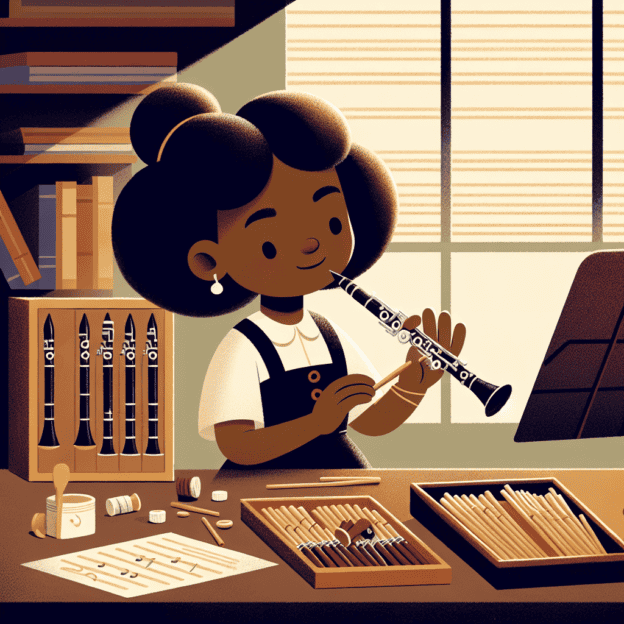Introduction to Clarinet Reed Strength Progression
Let's chat about clarinet reed strength progression! If you've been playing the clarinet for a while, you've probably noticed how important the right reed is for your sound. Picking a reed isn't just about comfort; it also affects how well you can play and the quality of your sound. As you get better, finding the right reed strength becomes an adventure. It's like upgrading your toolkit; you need the best gear to play your best!
Reeds come in different strengths, usually numbered from 1 to 5, and some brands like Martin Freres even offer higher numbers. Softer reeds (like 1 or 2) are easier to play and great for beginners, while harder reeds (like 4 or 5) need more skill but can give you a fuller sound. Pretty cool, right? As players improve, they often move to stronger reeds to get better tone and control.
How Reed Strength Impacts Your Playing
It's good to know that reed strength doesn't just change your sound; it also affects your embouchure, how you breathe, and your overall technique. For instance, if you suddenly switch to a stronger reed, you might feel like you're trying to blow through a wall! It's harder to make a sound, and you might get frustrated at first. But don't worry; this is all part of learning. With practice, those stronger reeds can help you play with more variety and expression.
| Reed Strength | Suitable For | Characteristics |
|---|---|---|
| 1 – 2 | Beginners | Easier to blow, less resistance |
| 2.5 – 3 | Intermediate players | Balanced resistance, better tone |
| 3.5 – 5 | Advanced players | More resistance, richer sound |
The Importance of Gradual Transition
The transition process should be slow and steady. If you're comfortable with a strength 2 reed, try moving to a 2.5. This small change lets your embouchure and breath control adjust without being too much at once. Everyone's journey is different, so take your time! It's like cooking; you add flavors bit by bit to see how they mix.
Choosing Reed Strength Based on Playing Style
As you progress, it's important to think about your playing style and the music you're focusing on. Classical pieces might need a different approach than jazz. In classical music, clarity and control are super important, so finding the right reed is key. For jazz, you might like a warmer sound from a softer reed, which lets you bend notes and improvise more easily!
If you play both classical and jazz, you'll probably have different reeds for different strengths. This variety helps you handle the needs of different musical styles. Martin Freres is known for quality, and many pros use their reeds for consistent performance in various genres. But whatever brand you pick, make sure it fits your personal playing style.
Breaking in New Reeds
When you get new reeds, it's important to break them in properly. It's like warming up before exercise! Play softly on your new reeds to let them adjust to how you play. You'll notice the reed responds differently as it warms up compared to when you first start playing.
Environmental Factors and Reed Strength
Another key factor in understanding reed strength is how the environment affects it. Humidity can really change how your reeds perform. In dry air, reeds get harder and more brittle, so you might need to use a softer reed to keep a good sound. In humid conditions, your reeds might get softer and louder, so you might need a stronger reed. It's just how nature works! Keeping your reeds in a case that controls the climate can really help them last longer.
Tips for Beginners
If you're just starting your clarinet journey, begin with a softer reed and slowly work your way up. Pay attention to how it feels as you move to stronger reeds, and don't rush. Remember, it takes time to improve, and every great clarinet player has gone through this process. Take it one step at a time, enjoy learning, and be proud of the progress you make!
Conclusion
In the end, choosing reed strength isn't just about picking a number; it's about making your musical experience better. So enjoy the journey, have fun, and keep trying different setups to find what works best for you. No matter what you choose, a brand like Martin Freres can help you achieve great sound quality and artistry in your playing.
Table of Contents
- Introduction to Clarinet Reed Strength Progression
- How Reed Strength Impacts Your Playing
- The Importance of Gradual Transition
- Choosing Reed Strength Based on Playing Style
- Breaking in New Reeds
- Environmental Factors and Reed Strength
- Tips for Beginners
- Conclusion







